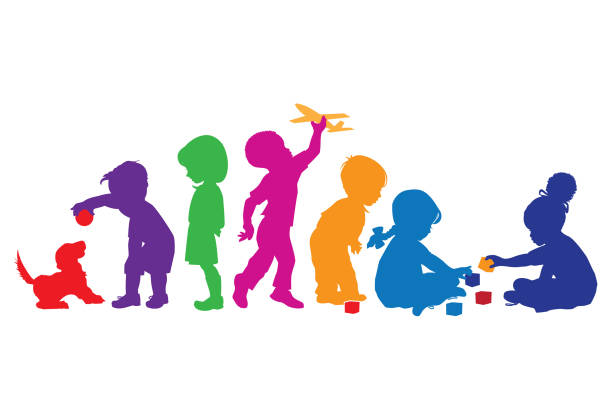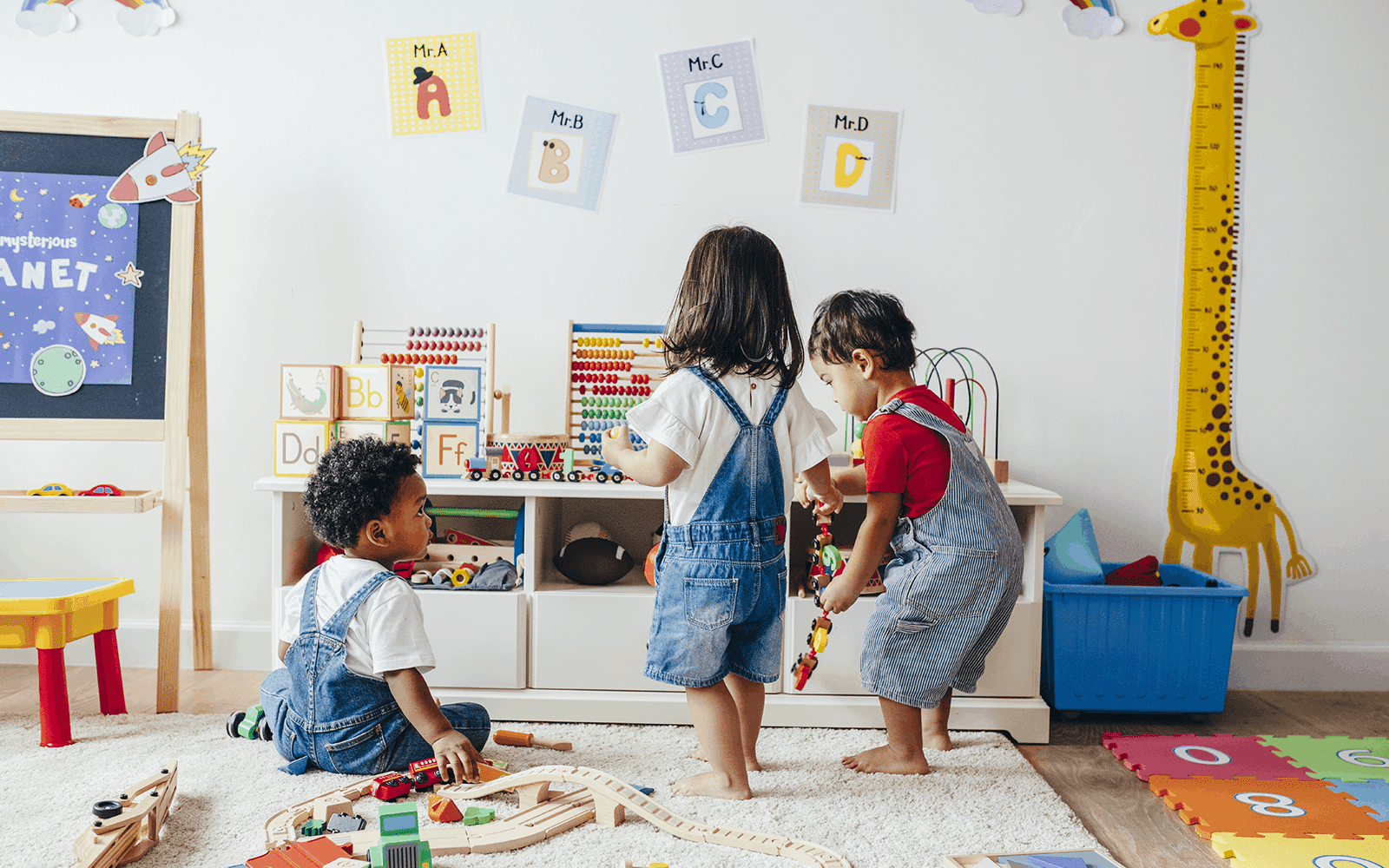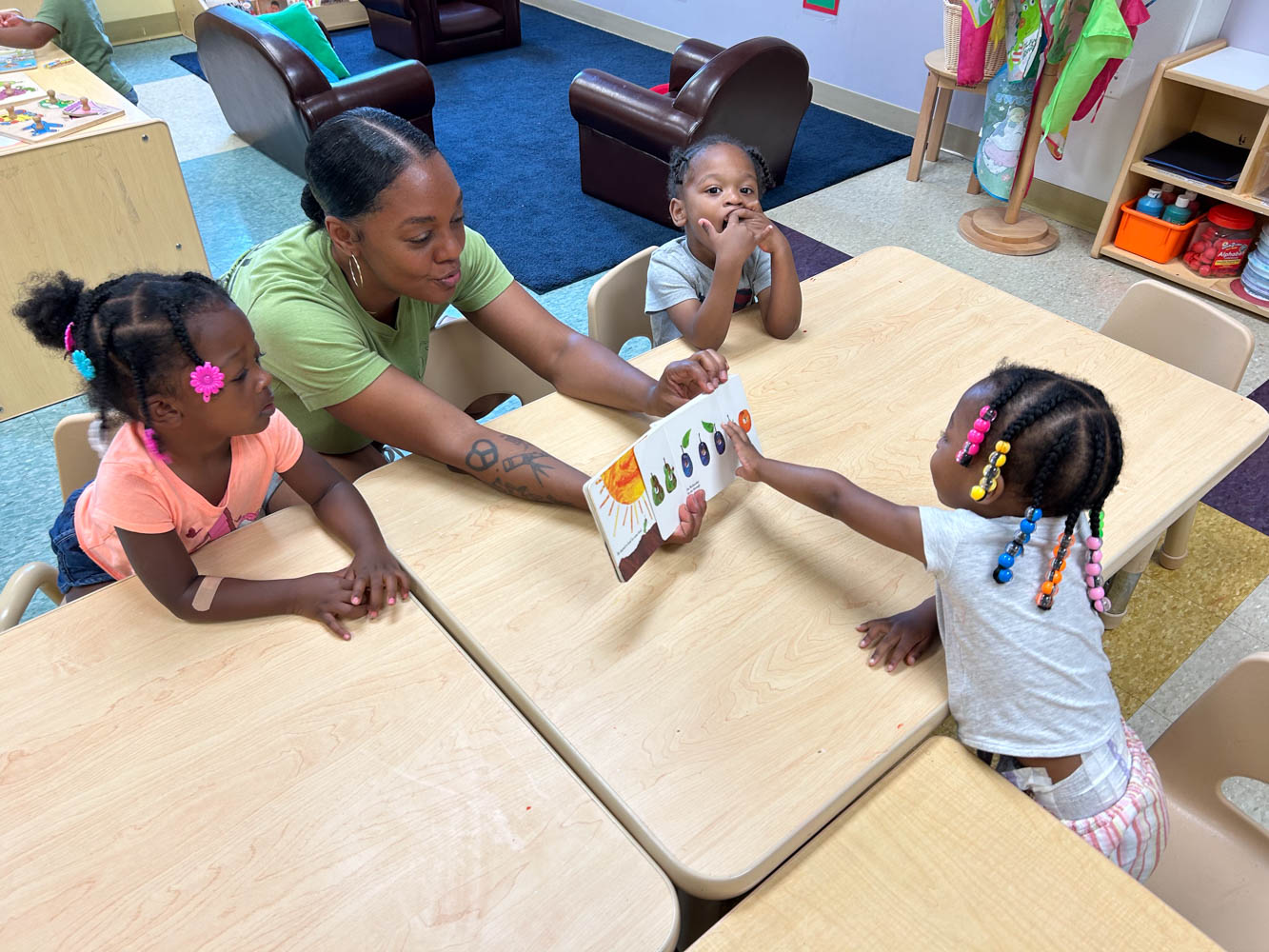Why Quality Matters Most When Looking For Child Care Near Me
Wiki Article
The Role of DAYCARE in Fostering Social Abilities and Very Early Knowing
Childcare serves as a substantial atmosphere for kids, promoting vital social interactions that promote early discovering. In this organized setting, children involve with peers and caregivers, developing necessary communication and collaboration abilities. As they browse play and various activities, they find out to fix conflicts and construct emotional intelligence. Understanding the subtleties of these interactions reveals the profound influence day care carries a child's advancement, shaping their future relationships and scholastic readiness. What specific abilities do kids obtain in this setup?The Relevance of Social Interaction in Day Care
While numerous moms and dads recognize the significance of early youth education, the duty of social communication in day care is often underestimated. Day care setups give children with vital chances to involve with peers, promoting essential social skills. Throughout these formative years, kids learn to browse different social characteristics, such as sharing, collaboration, and dispute resolution. Connecting with diverse age and personalities boosts their capability to adjust to various settings and create empathy towards others.
Building Interaction Skills With Play
Play serves as a powerful medium for youngsters to construct vital interaction abilities in childcare settings. Through various play activities, children engage in conversations, share their ideas, and learn to pay attention to others. Parlor games, for circumstances, encourage them to make use of language in various contexts, promoting vocabulary growth and understanding of social signs.
Storytelling during playtime allows youngsters to convey concepts and emotions, aiding them create narrative skills and confidence in their verbal expressions. On the whole, play not just acts as a pleasurable activity but likewise as a necessary system for developing the interaction abilities necessary for effective social interactions in later life.
Motivating Participation and Synergy
Participation and synergy are essential skills that kids can cultivate in childcare environments. Via different group activities, such as developing jobs or joint games, youngsters learn to share duties and pursue common goals. These interactions promote an understanding of the value of listening to others, negotiating duties, and jeopardizing when essential.In daycare setups, caretakers usually develop possibilities for youngsters to involve in teamwork by urging them to take part in group tasks. This not just helps children develop social bonds yet also grows a sense of belonging and community.
As they navigate these cooperative experiences, kids gain useful understandings right into the characteristics of dealing with peers. They learn to appreciate diverse perspectives and acknowledge that each member adds distinctly to the group initiative. Eventually, these early lessons in collaboration and synergy lay the groundwork for much healthier partnerships and reliable cooperation in future social and scholastic setups.
Structured Learning Activities and Cognitive Advancement
Structured understanding tasks play an indispensable duty in promoting cognitive advancement in children (Child Care Near Me). These activities, which consist of challenges, narration, and hands-on experiments, stimulate essential reasoning and problem-solving abilities. In a daycare setup, organized knowing motivates youngsters to engage with their peers, enhancing their capacity to procedure information and comprehend various ideas
Via led play and interactive tasks, children establish fundamental skills such as numeracy and literacy. As an example, tasks centered around numbers can assist youngsters comprehend mathematical principles, while storytelling improves language purchase and understanding. Furthermore, structured discovering enables instructors to assess developmental progress and dressmaker tasks to individual discovering needs.

Including a diverse variety of organized tasks not just advertises cognitive growth however also prepares children for future scholastic success. By giving a balanced atmosphere that fosters expedition and inquiry, childcare programs play a necessary function in forming the cognitive abilities of young students.
Cultivating Emotional Intelligence and Confidence
Psychological intelligence and self-confidence are necessary parts of a youngster's advancement, complementing the cognitive skills cultivated through structured discovering tasks. In childcare setups, youngsters are provided with opportunities to reveal their feelings and involve in social interactions, which are crucial for building psychological understanding. Through assisted play and group activities, kids discover to determine their sensations, identify those of others, and establish compassion.In addition, interaction with caregivers and peers helps to cultivate self-confidence and strength. Positive support and motivation from adults empower youngsters to take dangers and face obstacles, promoting a feeling of success. As they browse social dynamics, children develop self-confidence in their capacities to connect, collaborate, and settle conflicts - Childcare Near Me. This caring atmosphere enables the gradual growth of emotional knowledge, which is crucial for future interpersonal relationships and general well-being. Because of this, daycare plays a significant role in promoting both psychological knowledge and confidence in children
Regularly Asked Concerns
Just How Can Moms And Dads Pick the Right Day Care for Their Youngster?
Moms and dads should take into consideration factors such as area, staff certifications, security standards, educational program, and examines from other moms and dads when choosing the best day care for their child, guaranteeing it aligns with their child's developing needs and household values.
What Age Is Best for Starting Daycare?

Exactly How Does Day care Influence Children's Behavior in your home?
Childcare often favorably affects kids's actions in the house by enhancing social skills, advertising freedom, and encouraging psychological law (Child Care Near Me). Consequently, children may exhibit improved communication and teamwork, resulting in even more unified household dynamicsExist Any Kind Of Downsides to Childcare Participation?
Yes, there are downsides to day care presence, including prospective splitting up anxiousness, exposure to illnesses, and inconsistent caregiving. These variables can impact a kid's psychological health and change in the house, influencing overall family members dynamics.Just How Can Moms And Dads Support Social Skills Learned at Childcare?
Parents can support social skills discovered at daycare by promoting playdates, motivating cooperative tasks, modeling positive communications, reviewing sensations, and reinforcing sharing and interaction in your home, thus boosting their youngster's social advancement and self-confidence.Day care serves as a significant environment for young kids, helping with vital social interactions that advertise early discovering. Day care setups offer youngsters with important chances to involve with peers, promoting important social abilities. Play serves as an effective medium for kids to build critical communication skills in childcare setups. In childcare settings, youngsters are offered with opportunities to express their emotions and involve in social interactions, which are essential for developing emotional recognition. Daycare frequently favorably influences kids's habits at home by enhancing social abilities, promoting self-reliance, and motivating emotional law.
Report this wiki page